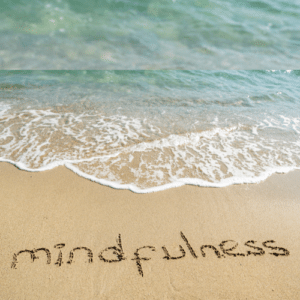The Power of the Beginner’s Mind in Self-Care and Stress Management
“In the beginner’s mind there are many possibilities; in the expert’s mind, there are few.” — Shunryu Suzuki
In today’s fast-paced world, many of us, particularly business professionals, get stuck in the mindset of pushing through stress and overwork. The constant pressure to perform and meet expectations leads us to normalize stress and overlook the importance of self-care. Often, the “expert’s mind” that Shunryu Suzuki describes can manifest as our rigid, negative beliefs about our ability to change or form new habits. This mindset keeps us trapped in addictive cycles of overload, stress, and burnout.
Breaking the Cycle of Overload and Stress
As we develop expertise in our careers, we naturally become more focused and efficient in our work. But this expertise can also narrow our thinking about what’s possible in our personal lives, especially when it comes to self-care. We may start believing that stress and overwork are inevitable and that there’s no time or space for wellness practices.This expert’s mind—filled with limiting beliefs like “I’m too busy for self-care,” or “I can’t change my habits”—can prevent us from exploring healthier ways to manage stress. It can convince us that change is difficult or that we are inherently bad at maintaining habits. These beliefs keep us stuck in cycles of stress and burnout.The beginner’s mind, however, invites us to see new possibilities and question these negative assumptions. It allows us to be open to change, to explore new habits without judgment, and to cultivate self-care in ways we hadn’t considered before.
Habit Formation with a Beginner’s Mind
Habit formation is a process that many people struggle with, especially when they set lofty goals like New Year’s resolutions. We start with enthusiasm, but after a few failures, we often slip into guilt, sham e, or a belief that we lack discipline. This is the expert’s mind at work—convinced that failure is final, and that we are not capable of creating new, healthier habits.
But when we adopt a beginner’s mind, we can approach habit formation with curiosity and non-judgment. We recognize that failure is part of the learning process, and instead of giving up, we begin again.
Mindfulness can support this practice by helping us become aware of the negative thoughts that often arise when we stumble. These thoughts might sound like “I’ll never be able to stick to this” or “I’m just not good at this.”By cultivating mindfulness, we can observe these thoughts without letting them control us, breaking the cycles that keep us stuck in stress and overload. With awareness, we can replace these negative beliefs with more supportive thoughts and behaviors that align with our health goals.
Mindfulness and Self-Care: Breaking Free from Limiting Beliefs

What if you found just 10 minutes a day for meditation or a walk outside? What if you attended a retreat, like a sailing and meditation retreat, where you could reset and restore your nervous system? The beginner’s mind allows us to explore these possibilities without being limited by our past experiences or negative beliefs.
A Fresh Start with Self-Care
By adopting the beginner’s mind, we can begin to break free from the cycles of overload and stress. This mindset invites us to approach self-care with curiosity, flexibility, and openness. We can start small, build new habits, and when we stumble, begin again without judgment. With mindfulness, we can become aware of the patterns and beliefs that keep us stuck and choose healthier, more supportive practices.Ultimately, the beginner’s mind offers us the freedom to explore new ways to care for ourselves, recharge, and reset—transforming our relationship with stress and well-being in the process.



